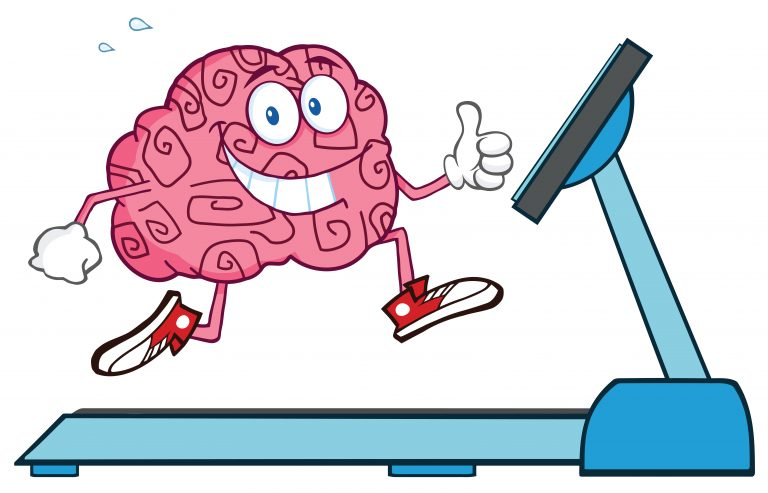Often when we think of exercise, we co relate it to the early morning jogs we get up for or the strenuous hours we spend at the gym, trying to keep our body fit. Little do we think about exercise and our brain and how important it is. A study in the Journal of Applied Physiology reveals that the key may lie in the body’s power supply. Although past research has shown that exercise encourages the growth of new neurons in certain regions of the brain, the widespread expansion of the energy supply could underline the benefits of exercise to more general brain functions such as mood regulation and dementia prevention. “The evidence is accumulating rapidly that exercise keeps the brain younger,” says J.Mark Davis, a physiologist at the University of South Carolina.
There is now ample evidence that physical activity decreases the incidence of cardiovascular disease, colon and breast cancer, and obesity, but also diseases such as Alzheimer’s disease (AD), depression, and anxiety. An article published in the Trends Neurosciences, published in 2007 states- “The benefits of exercise have been best defined for learning and memory, protection from neurodegeneration and alleviation of depression, particularly in elderly populations. Such exercise-induced structural and functional change has been documented in various brain regions but has been best-studied in the hippocampus. A key mechanism mediating these broad benefits of exercise on the brain is induction of central and peripheral growth factors and growth factor cascades, which instruct downstream structural and functional change. Thus, through regulation of growth factors and reduction of peripheral and central risk factors, exercise ensures successful brain function.” Neuroplasticity, the ability of the brain to change itself, is at work throughout life. Connections within the brain are constantly strengthening or fall dormant, depending on what is being used. Younger people change easily; their brains are very plastic. As we age, change doesn’t come as easily; the brain loses some of its plasticity and we become more fixed in how we think, learn, and perceive. Brain scans have shown activation in the frontoparietal, lateral temporal and parietal cortex, areas involved in attention, memory and semantic processing, while the person is engaged in a mentally challenging activities.
The brain is a complex working structure that needs constant nourishment from us. It does not only include the nourishment we give to our brain from reading articles or learning and memorizing different words and phrases, but also making sure we exercise it enough for it to function in a more cohesive way. It is very important to treat your brain as a temple as it is the master of your body and can aid in your daily activities. Usually, we just follow a fixed routine that our brain is accustomed to doing because it simplifies our day for us. It limits brain-draining decision making, which helps keeps our body’s battery charged throughout the day. It lets us perform complex tasks like driving a car with little mental effort. Routines are run by our subconscious mind and require minimal brain energy and consequently they provide the brain with little stimulation. Just as your body gets soft and lethargic from lack of physical activity, your brain gets sluggish and slow from too much routine. Thus, proactively shaking up your daily routines is key to a healthier, sharper mind. Scientists have found that challenging the brain with new activities helps to build new brain cells and strengthen connections between them. This helps to give the brain more ‘reserve’ or ‘back up’ so that it can cope better and keep working properly if any brain cells are damaged or die.
A few exercises that can be followed and incorporated into our daily routines and help our brain function more effectively can be as simple as trying to do our basic everyday routine, like brushing and eating food and drinking water with our non-dominant hand. Taking new routes to your place of work and reading your work aloud while studying, memorising or proof reading something can also prove to be effective brain stimulators.
Overall, try taking up new and challenging tasks. Make sure your brain is never stagnant and is always stimulated with some or the other exercise or information. Mindfulness meditation, playing a sport, learning a musical instrument, playing board games, doing simple mathematical calculations are tasks that can help your brain think in a new framework. Applying the existing knowledge in new and different ways for everyday tasks can be challenging and at the same time rewarding. Thus all the brain exercises will not only keep you fit externally but internally as well. So it’s your choice to ‘use it or lose it.’
Authorship: Urja Mehta

